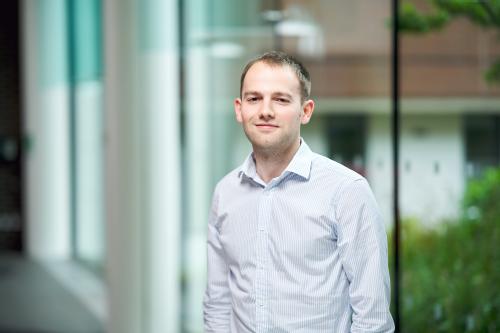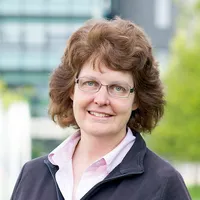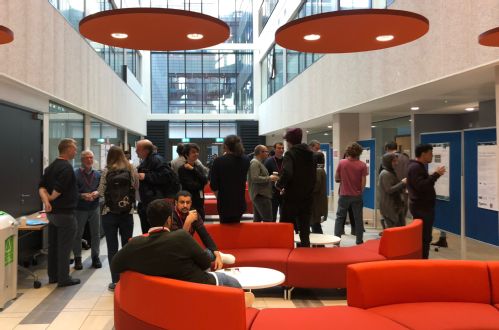Computer Science News
Professor Edmund Rolls' 15th book, "Brain Computations: What and How", published by Oxford University Press
Professor Edmund Rolls is pleased to announce the publication of his 15th book "Brain Computations: What and How" by Oxford University Press.
The aim of this book is to elucidate what is computed in different brain systems; and to describe current computational approaches and models of how each of these brain systems computes. Understanding the brain in this way has enormous potential for understanding ourselves better in health and in disease. Potential applications of this understanding are to the treatment of the brain in disease; and to artificial intelligence which will benefit from knowledge of how the brain performs many of its extraordinarily impressive functions.
This book is pioneering in taking this approach to brain function: to consider what is computed by many of our brain systems; and how it is computed. Details can be found here. Professor Rolls notes that the research described in this book has high impact in terms of citations (see here for more information).
Prof. Nasir Rajpoot awarded funding by Cancer Research UK to use machine learning to improve the early detection of oral cancer
Cancer Research UK is funding a study to examine the use of machine learning to assist pathologists and improve the early detection of oral cancer.
We are very excited to work on this project with Dr Khurram and his team at Sheffield. Early detection of cancer is a key focus area of research in our lab and this award by CRUK adds to the portfolio of research at the TIA lab on early detection of cancer.
The pilot project will pave the way towards the development of a tool that can help identify pre-malignant changes in oral dysplasia, crucial for the early detection of oral cancer. Successful completion of this project carries significant potential for saving lives and improving patient healthcare provision. -- Professor Nasir Rajpoot
The research is led by Dr Ali Khurram at the University of Sheffield with Professor Nasir Rajpoot from the University of Warwick as the co-Principal Investigator. Other co-investigators and collaborators include Professor Hisham Mehanna and Dr Paul Navkivell from the University of Birmingham and Dr Jacqueline James from Queen’s University Belfast.
Adam Shephard joins the TIA lab

Adam Shephard has just joined the department as a Research Fellow and is currently working in the Tissue Image Analytics (TIA) Lab on the ANTICIPATE project funded by Cancer Research UK. He has recently submitted his thesis on the application of deep learning to paediatric MRI at Aston University, under the supervision of Prof. Amanda Wood and Dr. Jan Novak. His role in the ANTICIPATE project will be concerned with the development and application of deep learning techniques to digitized histology slides to aid in the more efficient grading of head and neck tumours, to ultimately provide more accurate patient prognoses.
Dr Criseida Zamora joined the department as a Research Fellow
Dr Criseida Zamora has joined the department to work together with Dr Yulia Timofeeva, Prof Kirill Volynski (UCL) and a number of other world-leading experimental laboratories on an MRC-funded project "Virtual presynaptic nerve terminal". This project aims to develop a unified computational modelling framework which will allow the neuroscience community to explore mechanisms of synaptic transmitter release that cannot be directly determined experimentally.
Criseida is a Bionic engineer working in the Systems Biology field. She received a PhD degree in Biomedical Engineering and Physics working on the analysis of biochemical noise in synthetic genetic circuits at the Center for Research and Advanced Studies of the National Polytechnic Institute in Mexico. Her academic background and research experience have focused hitherto on building in silico models to study emergent properties of molecular systems to answer physiological questions. She has also worked as a postdoctoral scholar at Okinawa Institute of Science and Technology in Japan and the University of Bristol.
CRUK award to Dr Fayyaz Minhas for early detection of cancer
Dr Fayyaz Minhas of the Tissue Image Analytics (TIA) lab at the Computer Science department is a co-PI on a £97K grant by Cancer Research UK’s Early Detection Committee to explore machine learning for discovery of pre-neoplastic signature in mesothelioma. He will be working closely with the PI Dr Jan Lukas Robertus, who is a Senior Consultant Cardiothoracic Pathologist at the Royal Brompton Hospital. Dr Minhas will lead on the machine learning and computational pathology side of the project.
Further two academic promotions

 In the current challenging context, a piece of excellent news: Dr Jane Sinclair and Dr Yulia Timofeeva have been promoted to Professor, effective from 1 June 2020. Quoting from their recommendations,
In the current challenging context, a piece of excellent news: Dr Jane Sinclair and Dr Yulia Timofeeva have been promoted to Professor, effective from 1 June 2020. Quoting from their recommendations,
Dr Sinclair is an established educational leader in the department, the faculty, the university, nationally and internationally. Going far beyond development and delivery of teaching in the department, many of the main educational advances in Computer Science in recent years are due to Dr Sinclair, … Nationally and internationally, building on her excellent educational scholarship that has recently won a prestigious Best Paper Award, Dr Sinclair has shown sustained leadership in her work with ACM (the world’s computing society) as well as the leading national organisations Council of Professors and Heads of Computing (CPHC) and Computing At School (CAS), resulting in substantial impact on secondary and higher computing education in the UK and beyond.
and
Dr Timofeeva has an established international reputation for her research that spans several areas. Her recent successes with attracting external funding are impressive, including a £475K MRC grant and a major role in the £4.6M renewal of the MathSys CDT. … Dr Timofeeva has a strong track record of engaging with a variety of stakeholders in the context of her research field, through her editorial work, conference organisation, and visiting appointments. She has played a leading role in the UK Mathematical Neuroscience Network, which facilitates joint efforts by top UK researchers to tackle real-life problems. … One of the most collegiate and efficient Computer Science academics, Dr Timofeeva has had a large number of key administrative roles in the department and the MathSys CDT.
it remains to say many congratulations!
Warwick Postgraduate Colloquium in Computer Science 2019

The 17th Warwick Postgraduate Colloquium in Computer Science (WPCCS) was held on Monday 9 December, in the Mathematical Science Building for the first time. This year’s event saw 78 submissions from postgraduate research students in the Department. The submissions were split across six varied tracks, highlighting the breadth and depth of research currently being conducted by PhD students within the Department.
Student presentations were supplemented with two engaging guest talks from academics in the Department. Torsten Mütze captured everyone's attention with the mathematics behind origami, and Feng Hao enlightened the audience on the encryption challenges behind e-voting. The day concluded with a festive drinks reception, sponsored by the Department’s two Centres for Doctoral Training (CDTs), at which prizes were awarded to the best posters and presentations.
PhD student attendee Jonathan Davies said, “It was very rewarding for me to present at WPCCS this year. It gave me the opportunity to share my research with others and engage in stimulating conversation with my fellow postgraduate colleagues. The guest talks, in particular, were thought-provoking and engaging. I look forward to presenting at WPCCS in the future."
Hakan Ferhatosmanoglu, Director of Postgraduate Research and CS CDT, said, “It was a pleasure to attend WPCCS this year and to celebrate the excellent work that has been undertaken by our PhD students in the past year. It was great to see how everyone was having research discussions and exchanging ideas with each other.”
Prize Winners
- Best Presentation - John Pocock
- Best Poster - Tom Wood
- Best in Computational Biology - John Pocock, Rawan Abulsayli and Hammam Alghamdi
- Best in Theory, Foundations, and Discrete Mathematics - Alex Dixon and Thesjaswini Raghavan
- Best in Computer Security and Networks - Jasmine Grosso and Shin Wan
- Best in Machine Learning and Artificial Intelligence - Tom Wood, Abeer Almowallad, Gabriele Pergola, Haoyi Wang, Junyu Li and Helen McKay
- Best in High Performance Computing and Databases - Richard Kirk and Dean Chester
- Best in Urban Science - Jonathan Davies, Teddy Cunningham, Elisa Baioni, Ivana Tosheva and Shanaka Perera
